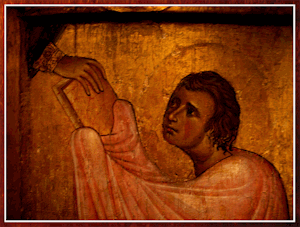Another reason I eventually chose to attend seminary can be traced back to the Documentary Hypothesis. I didn’t know back then that that is what it is called. But the popular work of Richard Elliott Friedman changed my world in 2001.
I had only been back in church for about a year and was a member of a congregation that highly valued Bible study and daily Bible reading as a form of personal devotion. I was reading whatever I could get my hands on. I picked up a copy of Who Wrote the Bible? and, as it turned out, I got more than I had bargained for.

Growing up Southern Baptist, I had learned to name all the books of the Bible. We had "Bible drills" in which we raced to see who could most quickly locate a verse, from the well-known to the obscure.
We learned about the formation of the New Testament canon and were told that a council at Jamnia had determined the content of the Old Testament. (This latter piece about the Old Testament is now held in suspicion in biblical studies.)
But what we all knew: Moses wrote the first five books of the Bible.
As it turns out, biblical scholars have suspected for years that the Pentateuch was written by multiple authors and then later pieced together as one continuous narrative. As a child I had noticed that some stories were told twice, but with slightly different details. These "doublets" now started to make sense.
I also learned to see two separate creation stories that had been placed side by side in Genesis. And though I’d never noticed it before, sometimes God was just called "God," while other times the word "LORD" appeared in the text. I knew that LORD was filling in for the Hebrew name of God, but it had never struck me that some passages consistently used "God" while others used "LORD."
Some rabbinic scholars had begun to notice anachronisms in the Torah as far back as 12th century. But it took Julius Wellhausen to raise the issue among Christians when he presented us with his Documentary Hypothesis.
Many of the finer details have been modified and debated over time, but the idea of sources coming from the Kingdoms of Judah (J) and Israel (E), from Priestly (P) sources, and from a Deuternomist (Dtr) or two and being interwoven and stitched together by a Redactor has come into broad acceptance in all but the most conservative biblical scholarship.
Strangely, these notions never made it to my Bible study curriculum as a youth…
Learning about the Documentary Hypothesis wasn’t a faith-shaker. It was, however, a great tool for opening up the world of source and redaction criticism and for understanding the scriptures as a body of work, pieced together over time, with different authors under different circumstances.
Part of the ease with which I took in this new information was that my "moderate" Southern Baptist church did not espouse biblical inerrancy, but rather preached biblical infallibility. Of course there could be errors in the transmission/translation of scriptures over time. But the overall message of the Bible was the ultimate source for choosing what is right in day to day life.
So when it came time later to learn that Isaiah may have had three different authors or that half the Pauline epistles may actually be someone else’s work, those discoveries weren’t threatening. Instead, they fueled my desire to learn more.
The Southern Baptists instilled in me a love for the Bible. And however ironic it might be in light of the later developments and split in Southern Baptist Convention, they are responsible for preparing me for the exciting explorations of biblical studies.

